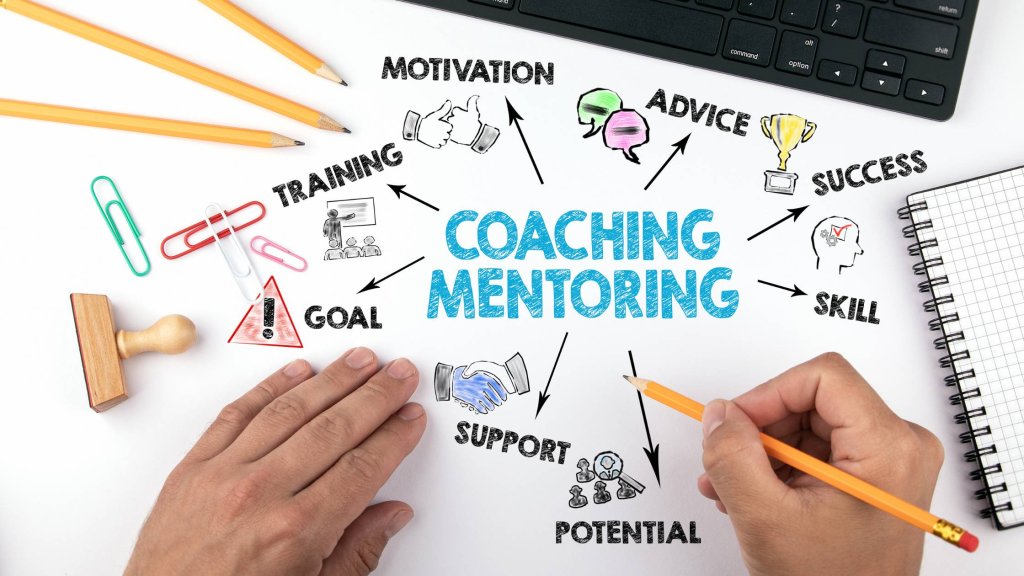Effective communication forms the bedrock of a fruitful relationship with your business coach. It’s more than just talking and listening; it’s an exchange of ideas, aspirations, and constructive feedback that forges a path to success. Clear and open communication bridges the gap between your expectations and your coach’s expertise. This synergy is crucial in pinpointing exactly what you need to flourish in your business endeavors. By articulating your goals and challenges effectively, you enable your coach to offer advice and strategies that resonate with your unique situation, ensuring that the support you receive is not just generic but customized to fit your specific business landscape.
This guide delves into the nuances of such interactions, offering actionable advice to elevate your communication with your business coach. It’s tailored for those embarking on their coaching journey and those seeking to deepen and enrich their existing coaching relationships. The insights provided here aim to enhance your ability to express your business vision and challenges clearly, embrace feedback, and adapt to evolving goals. By implementing these communication strategies, you stand to gain a more aligned and effective coaching experience that addresses your immediate business needs and fosters long-term personal and professional growth.
Understanding The Role Of A Business Coach

A business coach for women is like a trusted advisor who guides you through the ups and downs of your business journey. They don’t just give advice; they work with you to develop your skills, offer valuable insights, and provide the tools you need to grow your business and overcome challenges. Think of them as a partner who’s invested in your success.
The benefits of working with a business coach are numerous. They help you gain a fresh, outside perspective on your business, which can be invaluable in identifying areas for improvement. Coaches also keep you accountable, ensuring you stay on track with your goals. Additionally, they can be a great source of motivation, pushing you to reach new heights and step outside your comfort zone.
However, there are some common misconceptions about business coaching. Some think a business coach will do all the work for them. This is not true. A coach provides guidance and support, but the real work and decision-making are yours. Another misconception is that coaching is only for businesses that are struggling. In reality, business coaches can be beneficial at any stage of your business, whether you’re just starting or looking to expand.
Setting The Stage For Effective Communication
Effective communication with your business coach begins with setting clear expectations. It’s about being upfront about what you hope to achieve through coaching and understanding what your coach can offer. This mutual clarity lays the foundation for a productive relationship.
Next, it’s essential to discuss your goals and objectives. Be specific about what you want to accomplish, whether improving sales, enhancing leadership skills, or developing a new business strategy. Your coach can tailor their approach to meet these objectives, making your sessions more focused and valuable.
Finally, establishing a communication protocol is crucial. This means agreeing on how often you’ll meet, whether weekly or monthly, and deciding on the mode of communication, like in-person meetings, phone calls, or video chats. It’s also helpful to discuss preferences for follow-up communications, like emails or messages. This structure ensures that you and your coach are on the same page and helps maintain a steady flow of communication.
Building A Strong Relationship With Your Business Coach

A key part of working effectively with your business coach is building a strong, trusting relationship. Trust and honesty are the bedrock of this partnership. Being open and honest with your coach, even about the tough stuff, helps them understand your situation better. This transparency enables them to provide more personalized and effective guidance.
Being open to feedback and constructive criticism is also crucial. Your coach’s insights, even if they’re hard to hear sometimes, are meant to help you grow and improve. Viewing this feedback as an opportunity to learn, not a personal critique, is important. Remember, your coach is on your side, and their ultimate goal is to help you succeed.
Lastly, don’t hold back on sharing your successes and challenges. Celebrate your wins with your coach; it reflects your hard work and their guidance. At the same time, don’t avoid discussing the hurdles you face. Your coach can offer valuable advice on overcoming these challenges and potentially turning them into opportunities for growth.
Effective Communication Techniques
Effective communication isn’t just about talking; it’s also about listening. Active listening plays a vital role in coaching sessions. This means hearing what your coach says, understanding their advice, and considering their suggestions thoughtfully. It’s not just about waiting for your turn to speak but about genuinely engaging with what’s being said. This helps absorb their guidance fully and shows your coach that you value their input.
Clarity is another key component. When you’re clear in articulating your thoughts and questions, it helps your coach understand exactly what you need. Try to be specific and direct. Instead of saying something vague like, “I want to improve my business,” say, “I want to increase my client base by 20% in the next six months. How can I achieve this?” This level of detail helps your coach provide targeted advice.
Knowing how to give and receive feedback effectively is crucial. When giving feedback, be respectful and constructive. Focus on how your coach’s guidance impacts your progress and what could be more helpful. When receiving feedback, remember it’s meant to help you grow. Even if it’s tough to hear, try to see it as valuable information to help you improve.
Overcoming Communication Barriers
In any coaching relationship, it’s natural to encounter communication barriers. Recognizing these barriers is the first step to overcoming them. Common issues include misunderstandings, assumptions, and differences in communication styles. For instance, you might misinterpret what your coach suggests, or they might not fully grasp your business context.
To overcome these barriers, a key strategy is to always seek clarification. If something isn’t clear, don’t hesitate to ask questions. Encourage your coach to do the same. This open dialogue helps prevent misunderstandings. Additionally, try to adapt to each other’s communication styles. If your coach prefers concise updates, for example, tailor your approach accordingly.
Emotional intelligence also plays a significant role in effective communication. Awareness of your emotions and your coach’s can greatly enhance your interactions. If you’re frustrated or overwhelmed, acknowledge these feelings and communicate them to your coach. This awareness can help navigate the conversation more effectively, ensuring that both parties understand each other’s perspectives and emotional states.
Leveraging Technology for Better Communication

In today’s digital age, technology is crucial in enhancing communication with your business coach. Utilizing digital tools for scheduling, reminders, and follow-ups can streamline your interactions and ensure you’re both on the same page. Tools like online calendars and scheduling apps help set up meetings, reducing the chances of missed appointments.
Virtual communication platforms have also become essential, especially for remote coaching sessions. Platforms like Zoom, Skype, or Microsoft Teams allow for face-to-face interaction, regardless of your physical location. They offer features like screen sharing and document collaboration, making discussing strategies and progress in real-time easier.
A few best practices can make a significant difference when engaging in remote coaching sessions. Ensure you have a good internet connection to avoid disruptions. Choose a quiet, private space to conduct your sessions, free from interruptions. Also, be prepared with any materials or topics you want to discuss beforehand to maximize your time together. And don’t forget the importance of turning on your camera – seeing each other can greatly enhance the sense of connection and communication.
Tracking Progress and Adjusting Goals
Keeping track of your progress is a vital part of the coaching process. Regular progress reviews help you see how far you’ve come and what areas need more attention. These reviews are opportunities to sit down with your coach and assess what’s working and what’s not. They help understand the effectiveness of the strategies you’ve been implementing and provide a clear picture of your journey.
Adjusting goals and strategies based on feedback is another key aspect. Sometimes, the original plan might need tweaking to align with your evolving business needs or personal growth. Your coach’s feedback is invaluable here, offering insights into what adjustments could lead to better results. Remember, changing course is okay if it means better achieving your objectives.
Celebrating milestones is just as important as learning from setbacks. When you reach a goal, take the time to acknowledge and celebrate this achievement. It boosts your motivation and acknowledges the hard work you’ve put in. Equally, when facing setbacks, view them as learning opportunities rather than getting discouraged. Discuss with your coach what didn’t work and why, and use these insights to strengthen your future efforts.
Conclusion on Your Business Coach
Effective communication with your business coach hinges on clear expectations, active listening, and honest dialogue. You can greatly enhance this partnership by leveraging technology, regularly reviewing progress, and being open to adjusting goals. Remember, the relationship with your coach is a two-way street that thrives on mutual effort and understanding. Embrace these strategies and apply them to your coaching sessions. Doing so will improve your communication and maximize the benefits of your coaching experience, paving the way for personal and professional growth.



